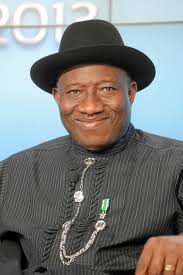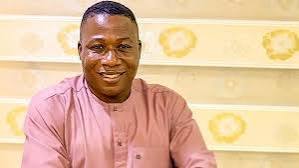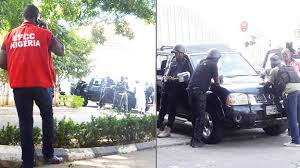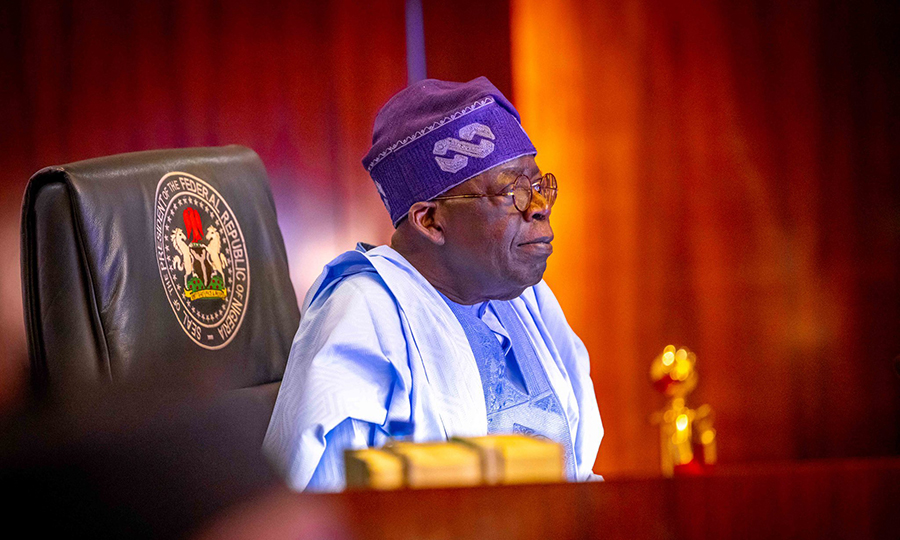Chief Suarau Olayiwola Alani Bankole will be installed today, Saturday, November 18 as the Apena of Egba Land by Oba Adedotun Aremu Gbadebo III, the Alake of Egba Land. He educates TOMI FALADE in this exclusive interview on the role of the ‘Apena’ and inner workings of the sophisticated Egba system of government.
How does it feel to take the important title of Apena of Egbaland after Chief Toye Coker who we knew was prominent and carried the title very well.
Let me start by thanking Allah for giving me this opportunity to serve for two reasons. The first reason is that the first person who occupied this position between 1898 and 1919 was my great-grandfather. Secondly, the just passed away Apena of Egbaland was my younger classmate in elementary school. I am about a year and a half older than he was. When he was to be appointed, the authorities that be in the palace then wanted me. But for two reasons, I couldn’t take the position. The constitution clearly mandates that the position be rotated within two royal houses. Chief Toye Coker was my cousin, and he came from my own ruling house. But because he lived in London all his life and he was not used to the dealings in the palace, the then Alake thought he would not perform. He thought the position was so important in the palace that he wouldn’t want to hand over the palace to someone who is not knowledgeable enough. Baba was old and he died five years later.
Number two reason was that I was so busy in Abuja, and I couldn’t leave to come and live in Abeokuta. And the Apena must live in Abeokuta because he must see Kabiyesi every day. So when he was installed as Apena, I thought and believed that I would ever have the opportunity to hold the title because of his age and my age. I didn’t pray a younger classmate should die before me because of a title. It is for these reasons I thank Allah for making me to occupy this position. So, I am both surprised and fulfilled.
Many young people do not understand the significance of titles these days. What does ‘Apena’ mean in this modern age?
There are titles and there are titles. There are titles that are statutory, and there are titles that are honorary. Most of chiefs you see around hold only ceremonial titles, they have no authority or department.
The Apena as established in 1898 made it secretary to the government. In those days, the Egba people had their government independent of Nigeria and British rule; we were not under any colony then. When the government was established on the advice of Lagos Colony Governor – Mccallum in 1898, the then Alake was the president of the republic, and the other obas then, four of them were ministers. Also, the head of the Muslims, and the head of the Christians were also ministers. The head of the Hausas was also a minster in that government, the Egba United Government (EUG) which was established by the declaration of 1898.
The Apena was meant to be the secretary to the government, the mouthpiece, the representative of Egba Alake section in that government because all the others represented certain interests. Today, the role has not changed a lot. The Apena is the gateman between the Kabiyesi and the other chiefs. There are about 12 statutory chiefs, all on the same rank of second-class obas, but they have different functions, and the Apena is supposed to be their coordinator.
Although we are now under a different rule since the amalgamation in 1914, we have always continued with our own traditions, practice, and culture. The politicians and military have tried as much as possible to suppress and bastardise it, we have kept on doing our thing with submission to the present government. That is why these types of titles are to be approved and recognised by the government. So, we try to run certain things without going against the government regulations and laws to make for peace, unity and progress of our communities.
It is not a coincidence that among all the commity of nations in Nigeria, we are one of the most progressive ones. Ogun State, especially Abeokuta province ranks to Lagos State like New Jersey to New York in the U.S. It has become part of Lagos and Lagos has become part of it. 40 per cent of the present Lagos State is Egba Land. Egba Land stretched up to Alakara, under the bridge at Yaba. In those days, there was Lagos Colony, and the rest was Western Region, Abeokuta Province up to 1967 when the military created Lagos State by fiat.
For education purposes, a lot of people feel that the position of Apena is like the head of traditional worshippers.
The Chief Imam of Egba Land is my cousin and would like to be present at my installation. But he doesn’t want to be present where they would do anything fetish. The Ogboni practise in Egba Land is a system of government, there is nothing fetish about it. It is not about religion. The man I took over from, Chief Toye Coker was the Baba Ijo of African Church of Nigeria. The position of Apena is purely administrative, it has nothing to do with religion. It is a continuation of the way the Egba run their affairs before the advent of the British who came here first in 1843. All the missionaries arrived in Nigeria through Abeokuta, through my compound in Sodeke, when Chief Sodeke was the Balogun of Egba Land. The first one was Henry Townsend, CMS, Anglican; the second was Birch Freeman, Methodist; and the third was Colonel Bowen, Baptist. They all arrived within one month and they did not come through Lagos, they came through Badagry, which was part of our territory. Lagos was a colony occupied by the Portuguese and the Brazilians. That is why Badagry was part of the Western Region, Egba Province.
In the last few years, you have been involved in the development of Egba Land. What makes the land unique?
I moved into Abeokuta to establish my factory in 1976, four years after the last Alake was installed. When Kabiyesi was installed, he invited some of us who were young and doing very well in Lagos. At the time I was one of the biggest clearing shipping companies in Nigeria. He encouraged us to come back home to come and support him to develop Egba Land. Incidentally, Ogun State was created around that time and Abeokuta was fortunately made the capital. So, there was a lot of rush from Ibadan to Abeokuta by the civil servants and businessmen from other parts of the country to come and establish in the new state capital.
The reason for our development is multifarious. The Alake of Egba Land was one of the first few obas that had contact directly with the British. So we have maintained a very strong relationship with the British which gave us the opportunity to adapt western education before most people. That we are also contiguous to Lagos State that harbours the biggest port in West Africa. We have always traded with people who come through that port.
When Western Region was created in 1957 there about, most people from Ijebu were closer to Ibadan so they moved there to settle. But the Egbas were moving to Lagos. That is why you find most first prominent people in banks are from Egba Land. In railway it is the same. This is what those of us who are young met when we were growing up.
What are the things you have seen at the federal level and would love to bring to Egba Land?*
I have seen nothing that I want to bring to Egba Land. It is true since the 1970s I was in the government of Shagari. I was the chairman of the Federal Mortgage Bank for the whole of Southwest, and I was close to the military boys. But Nigeria has been bastardized that there are no more values. The values we were brought up with are no longer there, and I believe that it’s the type of structure of government we run at federal level. We copied the presidential system but are we running it the way the Americans who we copied it from are running it? The major problem is that our system has made us lazy people. In America, it is the federating unit that sends support to the central, but here it’s the other way around, everyone is waiting from the local government, and state government for allocation from the federal. It doesn’t give them the ability to think as to how they can make money, only to divide money. The people we are coping with are always looking for money at the federating unit and sending it to the central, which encourages healthy competition.
If I had the choice or the power, I would ask for the restructuring of Nigeria tomorrow but not in the way people are saying give more money to the federating units. People should be encouraged to make their own money and contribute to the central.
When we had three to four regions, there was competition between the West, East, and North, and later on the East, the Mid-West, and the North.
Awolowo was the first to bring television. The East copied it, followed by the North. Awolowo started free education through Chief Awokoya, and it was copied in the East and then the North later. The first international stadium was built in Ibadan by Awolowo government, then we had Kaduna Stadium and then Enugu Stadium. Today, the competition is about who steals more. So, I have nothing to bring from the Federal to the Ogun State because there’s nothing there. A situation where someone sits in Abuja and wants to tell me the type of education I should give my children in my local government, it can’t work. The same person will tell the people in Sokoto, Maiduguri, Enugu, Aba the type of education to give their children, it cannot work.
On the contrary, I want to advise the central to come and copy a lot of things from Egba Land. The United Nations copied the five permanent members from the Egba system. We have what we call ‘omo iya marun’ in Egba Land, the five townships that decide most of the critical matters. We started it in 1898 and the United Nations copied it in 1945. So, I would suggest that the federal should come to Ogun State to learn how best to run government and have peace and progress in Nigeria.
You are quite passionate about Egba land. What are you putting in place to ensure this legacy continues?
As I said, when Oba Lipede became the Alake in 1972, he invited the young upcoming in those days to encourage us to come back home. Most of us in that set tried as much as possible to encourage our own children to be close to Abeokuta. Most of my children had their secondary education in Abeokuta, including Dimeji Bankole.
I also made sure most of them had their first degrees in Nigeria either schooled in U.I, UNILAG, OOU, or Ogun Poly. Only five did their first degrees outside Nigeria. Also, most of them are back in Nigeria doing their thing. Those outside the country are about 25 per cent. They all have something to do in Abeokuta.
The palace has also tried to encourage a lot of young men to come home and become chiefs. Most of our recently installed chiefs are professionals or successful businessmen, and they are involved in the running of the palace. They are the once we call the palace boys. We have tried to encourage them and support them in their business and politics so that they are still here and would continue the journey. That’s why you can’t find vacant land between Abeokuta and Lagos. About 50 per cent of those industries are either encouraged or brought in by Egba people. So we have tried to inculcate the idea of developing our own place, which has paid off.
As you know the first Yoruba president is from Abeokuta, the second was also from Abeokuta. The one who won and was not allowed to rule was from Abeokuta as well, so it is not a coincidence, it was by planning and encouragement. Their first goal is ‘omoluabi’, not money. You hardly find an Egba person that is very rich, most of them are averagely comfortable. Self-esteem and self-pride is important and these are some of the things we have put in place.
That’s why the last Alake wanted me because he knew I believe in it. Even when my business partners advised me that putting up an aluminium company in Abeokuta would not be as profitable as putting it in Lagos where the market is, I said no and put it here, although I paid for it.
By God’s grace, we are making progress and that’s why it is not a coincidence that we have highest numbers of universities with in the county in Abeokuta.
Source Independent.ng




